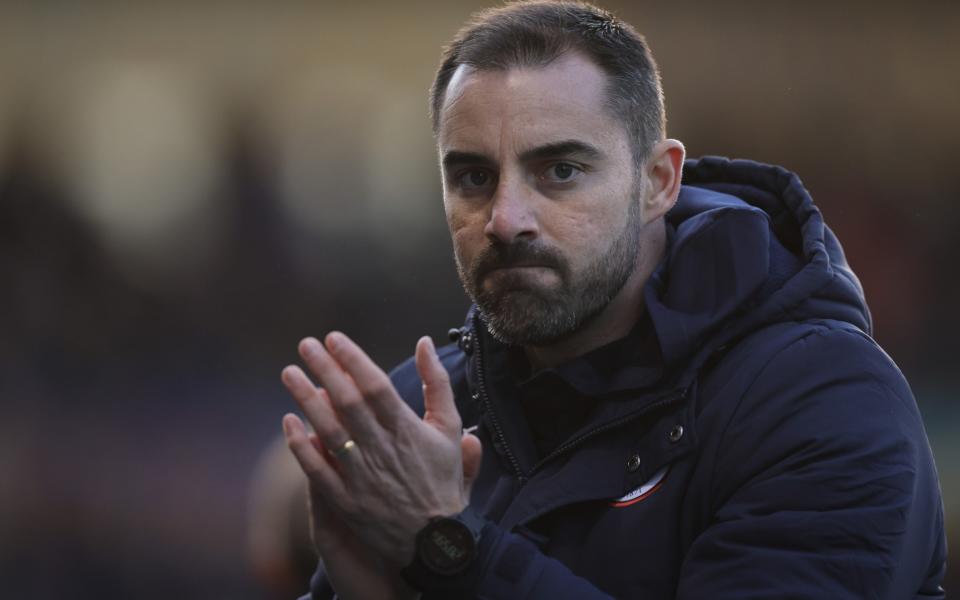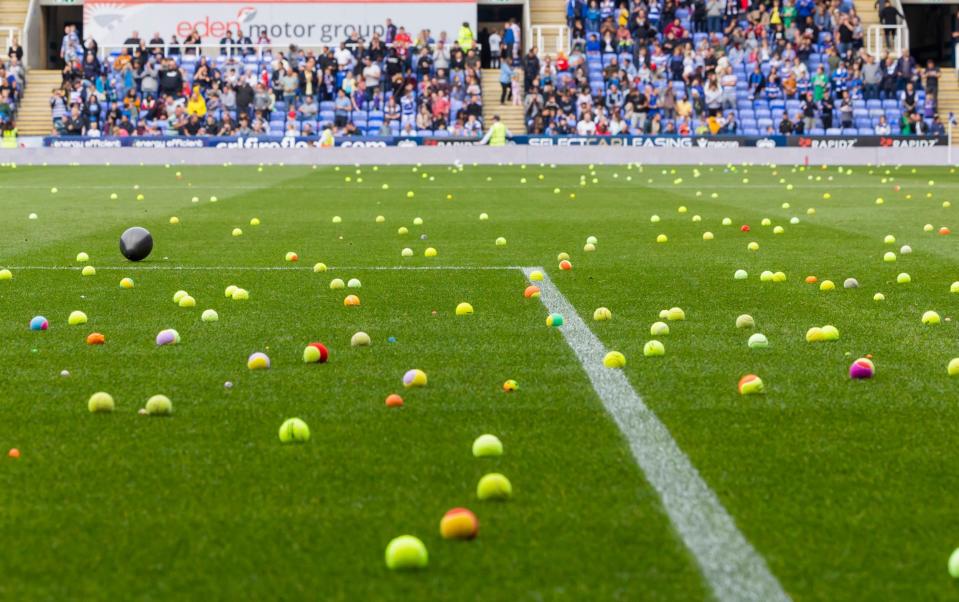Anchored at the bottom of League One, fans in revolt, and mired in financial difficulties, Reading is another cautionary tale of owners reaching for the stars but flying too close to the sun.
Dai Yongge’s Premier League dream has taken a turn for the worse and, just when Reading supporters feared their case would not be successful, the next seven days are yet another crucial week in their recent history.
Yongge is due to attend a hearing to answer a charge of misconduct by the English Football League and could be banned if found guilty by an independent commission.
The Chinese businessman has already been fined £10,000 for late payment of wages and is currently facing an additional penalty for failing to deposit funds in a designated account.
But the most serious concern for Reading fans is the threat of further points being deducted “due to continued non-payment of money owed to HMRC”.


Reading has already scored 16 points under the current system and is worried about the prospect of further sanctions, with the tax bill finally settled earlier this month after 79 days.
The club is already under restrictions in the next three transfer windows after missing a number of payments since July.
Another points deduction would put another dagger in the heart of those supporters who saw Yongge lead a masterclass in mismanagement.
Dropped out of the Premier League 10 years ago, Reading were known as the benchmark for sensible, well-run clubs. After winning the Championship with a record 106 points in 2006, they finished eighth in the top division the following season.
When Yongge took over in May 2017, Reading were days away from the Championship play-off final against Huddersfield, which they would lose on penalties.
Shortly after the sale was completed, former owner Sir John Madejski said: “Anyone with deep pockets joining Reading makes my day.”


But while Yongge’s ambition is not in question – he has invested more than £200 million – the time has now come for him to sell up and prevent further damage.
Reading face local rivals Wycombe on Saturday 10 points adrift of safety, with head coach Ruben Selles under increased pressure despite the chaos off the pitch.
Although this weekend will only be a short trip, Reading’s financial problems are so severe that overnight stays have been stopped before away games.
A protest group called ‘Sell Before We Dai’ has been formed and says they are “deeply concerned” about the club’s future.
Adam Jones, a spokesman for the group, said: “The soul of this club has been ripped away by a terrible owner and despite the efforts of the home fans who have continued to leave, many supporters have voted with their feet and decided. come no more.
“You can’t blame them, because there have been poor results and performances on the field in recent years. Not only is our off-field situation a travesty, but on-field standards have been deteriorating since Dai Yongge took over.


“Football is supposed to be an escape from everyday life, but for the fans, everyday life was an escape from Reading.”
Little is known about Yongge in this country, and he rarely gives interviews other than occasional remarks on Reading’s official website.
Now 55, he made his money by transforming air raid shelters into shopping malls and is said to be the executive chairman of Renhe Commercial Holdings Company Limited.
Yongge has rented a Grade II-listed seven-storey house near Buckingham Palace, valued at £76.5 million three years ago. He is also thought to be a regular at Mayfair’s exclusive casino, Les Ambassadeurs.
Problems have allegedly arisen due to his inability to transfer money from China to England, with the Chinese government putting limits on capital flowing out of the country.
However, Yongge has already seen two other football clubs collapse through bankruptcy under his ownership: KSV Roeselare, in Belgium, folded in 2020 and Chinese club Beijing Chengfeng disbanded after suffering two consecutive relegations .
It is also worth remembering that Yongge and his sister, Dai Xiu Lu, once failed to take over Hull City after allegedly failing the fit and proper persons test. [as it was known then].


The Premier League were reportedly “cautious” about their plans to buy Reading, and within years those concerns appeared to be well founded.
In the 2018-19 season Reading’s wage bill was reported to be £40 million, working out as 194 per cent of their turnover. For the following campaign their accounts revealed total accumulated losses of £138 million.
Sources with knowledge of the Reading case indicate that Yongge and his associates relied heavily on the advice of prominent agents during that period.
Reading were punished for the first time with a six-point deduction by the EFL in November 2021, for losses exceeding the £39 million allowed over three years.
Further penalties have followed in the next two seasons, for non-payment of wages and breach of financial rules.
The EFL has come under fire for imposing the sanctions, although the commission always makes the decisions. Trevor Birch, the EFL chief executive, said earlier this month: “We are required to ensure that all 72 members are treated fairly and consistently on all matters so that the integrity of the competition is maintained.”
The testing of their owners and directors has now been stepped up, but that is no consolation for Reading fans.
There is hope for a brighter future, despite the growing crisis. Yongge is screening at least three takeover bids and is on the verge of granting one group exclusivity over a deal, which could cost around £50 million in total.
Former Newcastle owner Mike Ashley and Genevra Associates, an investment group based in Luxembourg, have made offers, although there are suggestions of interest from American investors, and a party linked to Ken Anderson, the former chairman of Bolton Wanderers.
Nigel Howe, the former chief executive of Reading, is assisting Yongge in the negotiations.
With the club facing League Two, Yongge is under pressure to make a decision.
“It’s vital that it finds the right buyer,” says Caroline Parker, another ‘Sell Before We Die’ spokesperson.
“This cannot be a case of ‘out of the frying pan and into the fire’. We need a sensible owner who doesn’t play fast and doesn’t play by the rules.
“We ask the EFL to be strict with their tests of any new owners because this cannot happen again.”
These are still very anxious times, but Reading fans need only consider the recent events at Birmingham City and Derby to be convinced that all can change.
It has to happen quickly, however, as the future of a 152-year-old club is at stake.